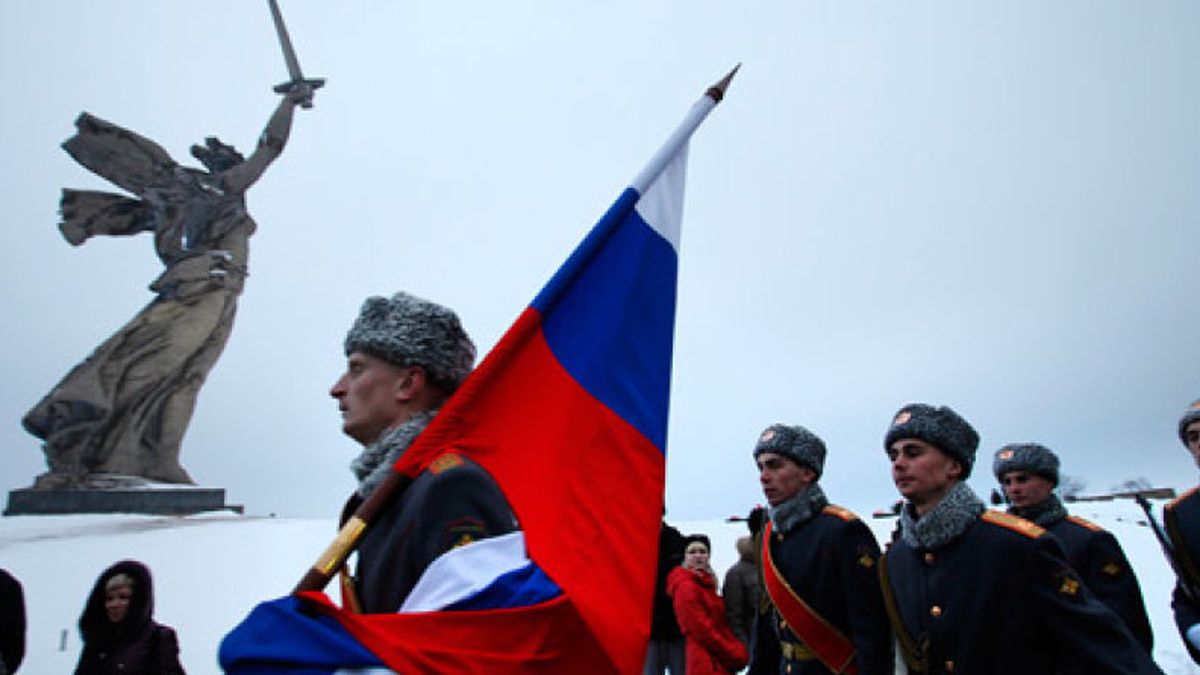(AFP) Eighty years have passed, but the sacrifice of Soviet soldiers before the Nazis during the Battle of Stalingrad is still present in the city now called Volgograd. A legacy in which Russian power tries to include its military operation in Ukraine.
On the banks of the Volga, the city is still marked by this titanic confrontation that left more than a million dead on the Soviet side in 1942-1943 and signified the beginning of the end of Adolf Hitler’s regime. Even today, bodies of soldiers from both sides appear on the steppes surrounding the city.
“In 2022, more than 1,200 Red Army soldiers were found” and only 30 have been identified, Andrei Oreshkin, who organizes excavations in search of bodies to bury them, told AFP.
For Russians, Stalingrad has become synonymous with victory over Nazism, and the battle also holds a central place in the patriotism promoted by the Kremlin.
- ‘We fought fascism’
As Russia prepares to celebrate the 80th anniversary of this victory on Thursday (2), the authorities are trying to inscribe their attack on Ukraine, which began almost a year ago, into this legacy.
Since the offensive began, President Vladimir Putin has reiterated that his neighbor must be “denazified” and called Ukrainian authorities “neo-Nazis” determined to exterminate Russian-speakers. Many in Russia accept this message. Among them, Andrei Oreshkin.
“Of course we are fighting fascism” in Ukraine, he told AFP from the Rosashka cemetery near Volgograd, where the Soviet, German and Romanian dead of Stalingrad are buried.
For him, the West is making a similar mistake as the Nazis by supporting Ukraine.
“At that time, Nazi Germany and its allies underestimated the specifics of the Soviet Union, its power and the patriotism of its people,” he adds.
And “today the West expects Russia to be weak,” Oreshkin concludes.
On the streets of Volgograd, symbols in honor of the Red Army appear alongside those of the troops fighting in Ukraine: the letters “Z” and “V” seen on many Russian military vehicles. The Museum of the Battle of Stalingrad hosts decoration ceremonies for the families of soldiers killed in Ukraine.
“The message is this: the ancestors of the people (killed on the Ukrainian ‘front’) were fighting against fascism,” says Tatiana Prikazchikova, a museum employee, showing a panorama of the Battle of Stalingrad.
“They are heirs to that tradition, because they actually fight against fascism, too,” she adds.
While Volgograd residents questioned by AFP are in favor of lavish commemorations of the Battle of Stalingrad on Thursday, with probably Vladimir Putin in attendance, many feel less comfortable talking about Ukraine.
Ekaterina Sedova, whose great-grandfather fought in Stalingrad, stresses that she doesn’t want to “mix things up.” This 21-year-old chemistry student says she doesn’t inform herself much about Ukraine “so as not to affect herself psychologically.”
- ‘Unacceptable parallels’
Volgograd historian Vyacheslav Yashchenko notes that ceremonies in recent years to celebrate Stalingrad are more pompous than in Soviet times and worries that this year they may be used to defend Russia’s attack on Ukraine.
“It is unacceptable to make such parallels,” he told AFP, despite the crackdown in Russia, where criticizing the offensive in Ukraine can lead to prison.
“The authorities instrumentalize past victories and historical events that serve to shape the image of the country and manipulate the consciousness of the people,” he warns.
At the Rososhka cemetery, Oreshkin, director of the Union of Volunteer Searchers of World War II Remnants, sees things very differently.
“Future generations might do what we are doing,” he says, as he shows medals found in the clay soil around Volgograd.
“I hope that those in power have learned from our experience and that the dead will not be abandoned on the battlefields,” he added.
*** Translated by the DEFCONPress FYI Team ***
